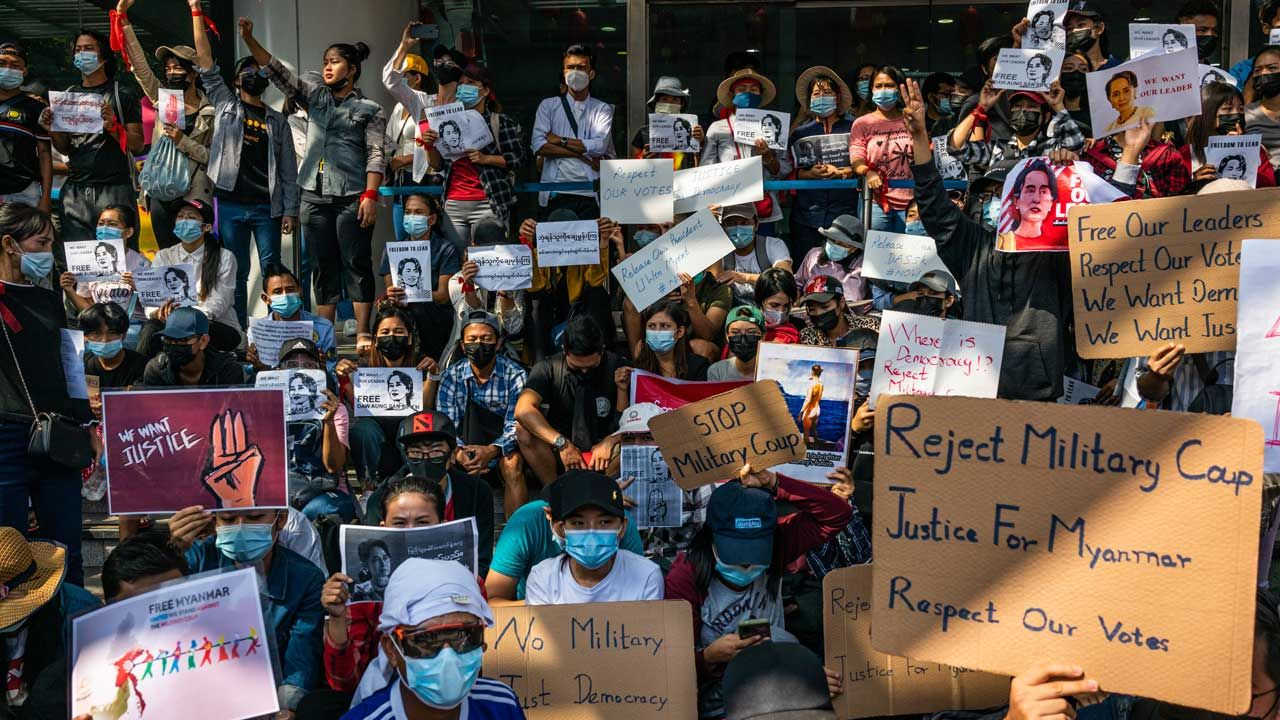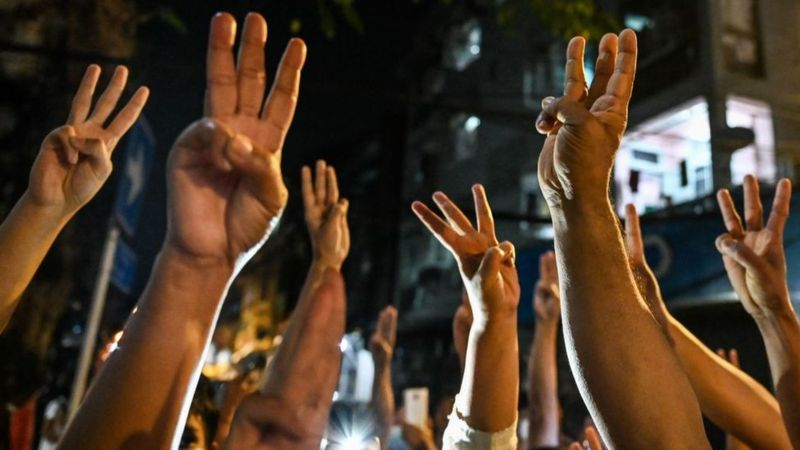On February 1, Myanmar’s military staged a military coup ousting its democratically elected leaders and launching a bloody suppression against citizens who oppose their actions. The military detained the nation’s de facto leader Aung San Suu Kyi and several other senior key governmental figures and imposed a year-long state of emergency. Military authorities banned Facebook on February 4, as the social media giant quickly emerged as a channel for organized civil disobedience. Stores ran out of daily necessities and the Internet and telephone lines were suspended. The nation is standing on the brink of a precipice and the world must pay careful to this emerging conflict. The Dankook Herald investigated.
The coup d'état was a reaction to the results of the general election held on November 8, 2020 where the existing governing party, the National League for Democracy (NDL) led by Aung San Suu Kyi, secured a landslide victory, occupying 396 seats out of 476. The NDL garnered overwhelming national support with 83.2% of the ballots cast. The military responded by claiming as many as 8.6 million voter errors on the electoral roll, casting doubt on the results. They held a press conference calling for an investigation into the “rigged” election on January 26, 2021 and hinted they would not accept the results. On January 30, the United Nation (UN) and local diplomatic missions expressed concerns about the comments being made and the military agreed they would respect the constitution. However, two days later, they launched the government takeover.
Myanmar is now in a state of crisis, as their nation has been forced back into a military dictatorship. Routes to the airport are closed and the military has established checkpoints all over the city. A military corps replaced the police, checking passing cars and people while armored cars and tanks are arranged along major roads.
 |
| ▲ Myanmar citizens continue to protest against the coup. (Photo from SBS News) |
In response to illegal actions by the military, Myanmar's citizens appealed to the world for help calling for global protests. They uploaded posts to social media. "This coup did not start from us" they said on Twitter and Facebook. "To resolve this one-year declaration of a state of emergency, we, Burmese, need help from all over the world. Please save Myanmar. Please save us". Other posts seeking help include the hashtags #SaveMyanmar, #Myanmarcoup, #Reject_the_Military, #Myanmar_wants_Democracy, and #JusticeForMyanmar. It did not take long for the military to block access to Facebook. The social media page was one of the most powerful tools for organized social unrest used by about half of Myanmar's population. The shutdown was an attempt by the military to neutralize the resistance of citizens. Despite an increase in threats from the military, protests against the coup continue to spread. On the night streets of Yangon, the largest city in Myanmar, citizens express their opposition to the military action by banging on pots and cans or honking car horns. In addition, college students and professors at the Yangon University of Education launched a protest with the three-finger salute tied with a red ribbon in support of Aung San Suu Kyi. A three-finger salute is done by pointing index finger, middle finger, and ring finger to the sky, each of which represents election, democracy, and freedom.
 |
| ▲ Three-finger salute represents election, democracy, and freedom with the index finger, middle finger, and ring finger being pointed to the sky. (Photo from BBC News) |
The Group of Seven and the European Union condemned the actions by Myanmar’s military. On February 3, G7 foreign ministers including Britain, the United States, Japan, Germany, Italy, France, and Canada issued a joint statement denouncing the coup, and on February 22 foreign ministers from 27 EU member states discussed the actions by the military and the EU’s response at a meeting. Britain and Canada have launched sanctions against the state, including freezing the assets of Myanmar's top military officials, and banning travel. Although the U.N. Security Council initially offered a lukewarm response, they issued their first press statement on February 4, expressing deep concern for the future of the nation. However, due to the opposition of China and Russia, which are permanent members of the UN Security Council, the level of criticism in the statement was watered down. China is in an awkward position as they have a good relationship with both the military of Myanmar and the Myanmar government led by Aung San Suu Kyi. Meanwhile, Norway set aside a budget to help Myanmar's public institutions improve their expertise in renewable energy, environment, and marine protection, but said it will stop supporting the military led government. The British introduced measures to prevent their aid from indirectly helping Myanmar's military government. South Korea is also in solidarity with the deposed Myanmar government. On February 5, a youth civic group called ‘Segyesimin’ joined a protest near the Myanmar Embassy in Yongsan-gu, Seoul. The People Power Party and the opposition party of the Korean government issued a resolution condemning the coup, calling for the restoration of human rights and democracy in Myanmar and an end to the oppression of minorities. On February 19, a protester in her 20s, died after being shot in the head by police during a demonstration denouncing the coup. This is the first time a civilian was sacrificed during the protest. Citizens are posting the hashtag "I am Cain" on social media in her memory. She has become a symbol of disobedience to the coup across the nation.
Acknowledging and accepting the results of a fair election is critical for politicians. Myanmar's military must accept the results and put an end to their coup. The international community needs to focus their attention on this matter and support the protesters in their fight to restore democracy.
서영진, 정소연, 정예지 dankookherald@gmail.com

![[Campus Magnifier] Let's Surf the Library!](/news/photo/202404/12496_1765_4143.jpg) [Campus Magnifier] Let's Surf the Library!
[Campus Magnifier] Let's Surf the Library!
![[Campus Magnifier] Let's Surf the Library!](/news/thumbnail/202404/12496_1765_4143_v150.jpg)





